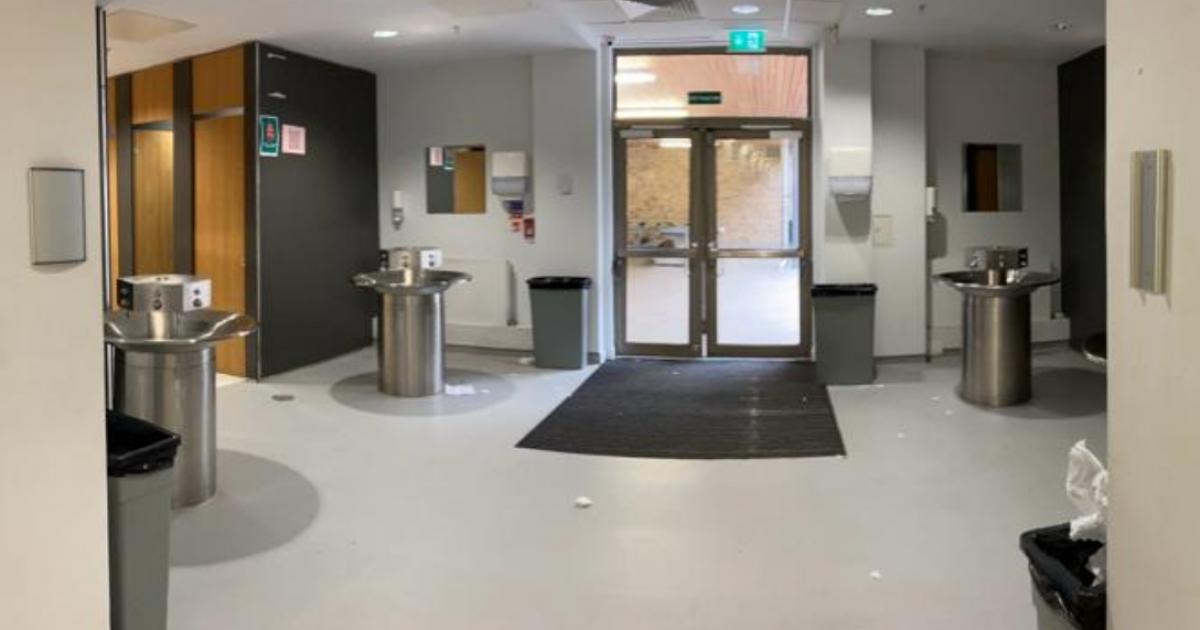For Women Scotland, who earlier this year won a court challenge which found that the words ‘woman’ and ‘sex’ in the Equality Act 2010 refer to a biological woman and biological sex, said the authority’s initial survey of its schools was “inadequate” and should be revisited.
However, equality campaigners warned the changes proposed in Edinburgh could cause “distress and harm” to trans pupils.
It comes as For Women Scotland prepares to launch fresh legal action against the Scottish Government claiming its existing guidance on transgender pupils in schools and transgender people in custody are “in clear breach” of the law.
After the Supreme Court’s April ruling, a review of the city’s schools found a “small number” only had gender-neutral toilets, and lawyers told the council they would need to make changes to stay within the law.
Survey results showed that some secondary schools will need to relabel certain gender-neutral toilet blocks as either male or female, while all secondary schools – and most primaries – already have at least one toilet that meets Equality Act rules and can be kept as gender-neutral.
Read More:
In addition, the review found “a few smaller primary schools” will be required to make staff toilets available where a pupil or pupils request gender-neutral provision.
The council said further investigations were ongoing to determine all necessary changes, but Maybury Primary, which opened last summer, was so far the only primary school identified as “being likely to require more significant physical adaptations”, adding all secondary schools across the city “have at least one toilet that meets the requirements of the Equality Act and can be designated as gender neutral”.
In a written deputation to the council’s education, children and families committee, For Women Scotland disputed the claim that no physical adaptations were required to any secondary school toilets.
They cited data obtained through a freedom of information request showing only one Edinburgh secondary school, Tynecastle High, meets the number and type of sanitary facilities as specified by the government’s School Premises Regulations.
“70% of Edinburgh secondary schools fall below the number of WCs required for girls, and all but two schools fail to provide sufficient appliances for boys, particularly urinals,” they said.
“Worryingly, six secondary schools have mixed-sex toilets.
“The School Premises Regulations specify not just that toilet facilities and handbasins must be provided separately for each sex, but that there are minimum numbers of appliances for each sex dependent on the school roll, and that not more than one third of the sanitary appliances for boys shall be WCs and the remainder shall be urinals.
“Within the minimum provision there is no scope for mixed-sex toilets (sometimes referred to as gender-neutral toilets). This should be apparent by the need to provide boys with urinals.”
Trina Budge of For Women Scotland told The Herald: “We’re hoping [the council] will go back and look at it in more detail because we are aware of six secondary schools that have mixed-sex toilets and they need to be removed and returned back to single sex.
“I think the council is working on the assumption that as long as the school has some single-sex toilets it’s okay to have mixed sex toilets as well and that, as far as we’re concerned, is a misreading of the law.
“There is going to have to be structural work that has to separate that space into boys’ and girls’ facilities.
“There’s a lot more work to be done is basically our message.”
Meanwhile, a submission to the council by Vic Valentine, Scottish Trans Manager of LGBT charity Equality Network, said they believed the planned changes were not required for schools in Edinburgh to comply with the law.
It said: “Access to safe and appropriate toilet facilities is a basic human right. It is totally essential in ensuring that trans pupils can attend school. Given that these facilities are so heavily gendered – designated almost always as spaces for only boys or girls – this makes them places that are likely to pose particular challenges for trans pupils.
“I am deeply concerned that changes that have been implemented across Edinburgh will result in trans pupils being forced in some schools to use facilities totally segregated from others, marking them out both figuratively and literally as different, and as people who can not share spaces with their peers. This can not possibly create a positive learning environment for those pupils, and I worry greatly about the distress and harm that it may cause.”
Read More:
Ann Marriott, Youth Work Manager at LGBT Youth Scotland, said reorganising toilets in schools “risks creating exclusion and harm for transgender and non-binary young people” as well as for “any pupil who does not fit an expected view of what a ‘boy’ or ‘girl’ should look like”.
She said the council report “does not set out the detail of the changes to school estates” and as a result young people “feel very uncertain and anxious about what this means for them on a day-to-day basis”.
A City of Edinburgh Council spokesperson said: “We continue to support transgender and non-binary pupils while we await new national guidance including the Code of Practice from EHRC.
“In the meantime, we have looked at what changes needed to be made in our schools ahead of the new school term, and we have started the process of implementing these changes.”
